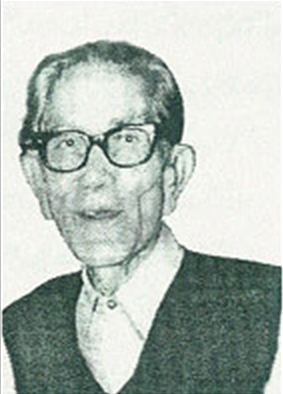Prof Ahmed Ali
This is a collection of articles archived for the excellence of their content. Readers will be able to edit existing articles and post new articles directly |
Prof Ahmed Ali
Urdu short-story, progressivism and Prof Ahmed Ali
By Rauf Parekh
A scholar, short-story writer, novelist, critic and translator, Prof Ahmed Ali is one of those few writers who have written both in Urdu and English. He continued writing in both languages till he died, when his fame had already crossed over the borders of the subcontinent.
Ahmed Ali shot to fame in 1932 with the publication of ‘Angare’ (or embers), a fiery collection of Urdu short stories that, true to its name, ignited a fire of anger throughout the conservative society of India that viewed the collection as obscene, blasphemous and a challenge to the moral codes and traditional norms of society.
Though he wrote many more short stories, novels and other books, the fame, or notoriety, he gained through the publication of ‘Angare’, kept haunting him throughout his life and even today his name invokes strong association with ‘Angare’. The book, seen by many as a harbinger of the progressive literary movement in the subcontinent, consisted of 10 short stories. The others who contributed to it were his Marxist friends Sajjad Zaheer, Rasheed Jahan and Mahmood-uz-Zafar.
One of the most significant contributions of Ahmed Ali’s was his role in the formation of the Progressive Writers’ Association (PWA) in 1936, with he being one of the founders who conceived the PWA’s basic idea and its manifesto, though he later developed differences with other comrades of his and distanced himself from the movement and association .
Born on July 1, 1910, in Delhi, Ahmed Ali did his Master’s in English from Lucknow University in 1931 and taught at the Lucknow and Allahabad universities and Presidency College, Calcutta (now Kolkata), between 1931 and 1947. He served as a visiting professor in China for about two years and then joined Pakistan’s foreign service, where he worked till 1960.
He began writing in English and got published his first English poem titled ‘The lake of dreams’ in 1926 (when he was 16), in an Aligarh magazine. His first English short story was published in 1928 in Lucknow University’s magazine. “Mahavaton ki aik raat’, or a night of winter rains, was his first Urdu short story which, according to Dr Farman Fatehpuri, was published in Humayun’s annual issue in January 1932. The same short story was included in ‘Angare’ when it was published later the same year.
By the time Ahmed Ali began writing, Urdu prose was submerged in romanticism, subjectivity and aestheticism. Awash with highly imaginative short stories, Urdu fiction of the day was, to a large extent, written in a flowery language teeming with poetical and metaphorical expressions with Sajjad Hyder Yildirim, Majnoon Gorakhpuri and Niaz Fatehpuri being its master practitioners. Even literary criticism had become poetical in style and a sign of the time was Abdur Rehman Bijnori’s appreciation of Ghalib’s poetry, ‘Mahasin-i-Kalam-i-Ghalib’, that sounded more like a eulogy than a detached critical evaluation of its subject. Writers and critics were more concerned about conveying their own feelings and personal experiences rather than depicting society and reflecting real life in fiction.
It was progressive writers such as Ahmed Ali who introduced realism, objectivity, class-struggle and social and economic woes of the teeming millions, hitherto largely ignored, to Urdu prose. Though Munshi Prem Chand had written short stories and novels that were a protest against the abject poverty, social injustices and exploitative capitalist economy, Ahmed Ali was the first to write creative fiction with a deep sense of social injustices and understanding of the Marxist philosophy.
To convey their message of the Marxist philosophy to the people, Urdu short story was the chosen genre of the progressives. Progressivism and Urdu short story reached the pinnacle of their popularity in the subcontinent hand in hand, pushing Urdu poetry’s most popular genre ‘ghazal’ to the backburner with its traditional ideas of love, albeit only to see ‘ghazal’ stage a comeback with a classical diction that had contemporary political connotations. In fact, some critics, Ali Jawad Zaidi, for instance, believe that it was Urdu short story that heralded the birth of progressivism in the subcontinent. Even today, short story is the most favoured genre of Urdu fiction and it owes much of its popularity to those who made it a tool to express modern sensibility and contemporary political and social trends, and the list includes Prof Ahmed Ali as one of the pioneers.
His English novel ‘Twilight in Delhi’ (1940) portrayed the old but empty mannerism and the fading culture of Delhi. Its translation ‘Dilli ki shaam’ was published in 1963. The collection of his short stories include ‘Shole’ (1936), ‘Hamari gali’ (1943), ‘Qaid khana’ (1944), ‘Maut se pehle’ (1945). ‘Ghalib: selected poems’, ‘Maxim Gorki as a short story writer’ and ‘Problem of style and technique in Ghalib’ are some of his critical works published in English. ‘The golden tradition’ is an anthology of selected and translated Urdu poetry published by the Columbia University Press with a scholarly introduction by Ahmed Ali. Many of his books and English translations of Urdu poetry were published abroad and, as a result, most of his countrymen remained unaware of many of his precious works.
What created particular interest and curiosity was his English translation of the Quran which many saw as a remarkable deviation from his well-known stance, though he had much earlier disassociated himself from the progressive writers and had made his disagreement clear in an article published in a magazine named ‘Manzil’.
Prof Ahmed Ali died in Karachi on January 14, 1994.
drraufparekh@yahoo.com
